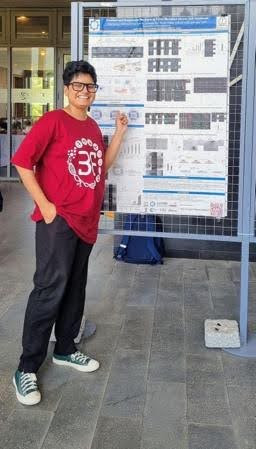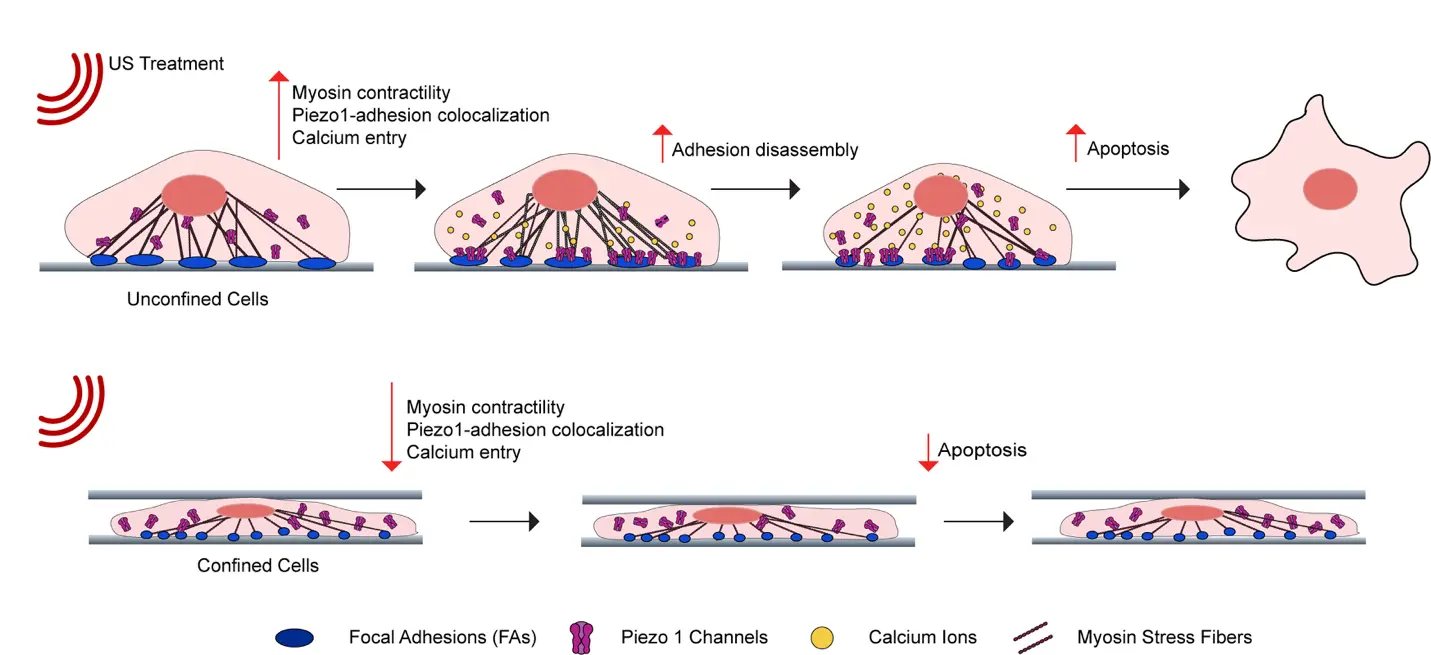Research Summary: Cancer cells in tight spaces resist ultrasound-induced death (mechanoptosis) due to disrupted force sensing. Restoring their mechanical sensitivity could improve ultrasound therapies for invasive tumors.
Author Interview

Alka Kumari is a graduate student in the Department of Bioengineering at the Indian Institute of Science, Bangalore. She works at the department in Dr. Ajay Tijore’s “Mechanobiologics lab”. Her research focuses on developing PDMS elastomer-based microfluidic platforms to study cancer cell growth under mechanical force treatment.
Lab: Prof. Ajay Tijore, Indian Institute of Science, Bengalore
Lab website: https://tijorelab.com/
What was the core problem you aimed to solve with this research?
The core problem was understanding why cancer cells in confined environments, like tumors, resist apoptosis triggered by mechanical forces such as ultrasound, which otherwise kill unconfined cancer cells effectively.

How did you go about solving this problem?
We used microchannel platforms and 3D tumor spheroids to mimic confined tumor environments. By analyzing focal adhesions, Piezo1 channels, and myosin contractility, we identified how confinement disrupts force sensing and apoptosis.
How would you explain your research outcomes (Key findings) to the non-scientific community?
Cancer cells squeezed in tight spaces don’t respond to ultrasound treatment because they lose their “grip” on their surroundings. Restoring this grip could make ultrasound therapy more effective against tumors.
What are the potential implications of your findings for the field and society?
These findings could improve ultrasound-based cancer treatments by targeting confined cells. Combining ultrasound with drugs that restore cellular “grip” might enhance therapy precision and reduce side effects.
What was the exciting moment during your research?
The most thrilling moment was discovering that forcing confined cells to form focal adhesions (using Rho V14) made them vulnerable to ultrasound. Thus, restoring their mechanical sensitivity could improve ultrasound therapies for invasive tumors.
Paper reference: Kumari A, Kumar A, Xu G, Roy K, Pratap R, Holle A, Tijore A. Confinement Suppresses Mechanical Force-Mediated Cancer Cell Apoptosis. Small. 2025 Jun 25:e2504261. doi: 10.1002/smll.202504261. Epub ahead of print. PMID: 40556557. https://onlinelibrary.wiley.com/doi/10.1002/smll.202504261
Explore more
🎤 Career – Real career stories and job profiles of life science professionals. Discover current opportunities for students and researchers.
💼 Jobs – The latest job openings and internship alerts across academia and industry.
📢 Advertise with BioPatrika – Reach the Right Audience, Fast!
🛠️ Services – Regulatory support, patent filing assistance, and career consulting services.




